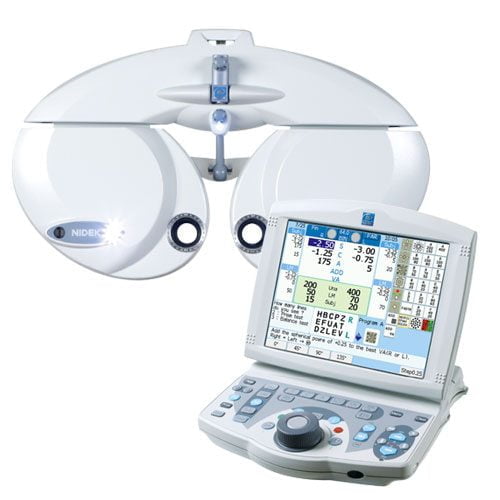How Often Do I Need To See An Optometrist?
At Associates in Family Eyecare, we strive to provide primary eye care for the whole family. During your comprehensive eye examination, our licensed optometrists will determine your prescription for eyeglasses and/or contact lenses as well as evaluate the health of your eyes.
The American Optometric Association recommends yearly or bi-yearly eye examinations regardless if you need vision correction or not. Your optometrist often recommends more frequent examinations if you have eye diseases or systemic diseases, such as diabetes or high blood pressure.
Eye Exams for Children
Children need to have their eyes examined and our optometrists at Associates in Family Eyecare are fully equipped to see the pediatric population. The American Optometric Association suggests that all children should have their eyes checked at six months of age, at age three, and age five, and every year while in school.
According to the American Public Health Association, 10% of preschoolers and 25% of children in kindergarten have significant vision disorders. Common risk factors for vision problems in children include:
- Premature birth
- Developmental delays
- Crossed eyes or a family history of an eye turn
- Family history of eye disease
Don’t delay in scheduling your child’s comprehensive eye exam; call us today at 814-269-3660!


What Advanced Technology Will Be Used During My Comprehensive Eye Exam?
From the pretesting equipment used to measure intraocular pressure and peripheral vision, to finding the best spectacle prescription possible, Associates in Family Eyecare has the newest technology for more efficient and accurate eye exams.
Pretesting Rooms
- Our skilled technicians conduct procedures on patients in our pretesting rooms which make the eye exams more efficient and productive by gathering necessary data before seeing the doctor. Our pretesting rooms include the following tests: Corneal Topography, Tonometry, Visual Field Screening, Autorefractor, TearLab, Inflammadry, Optomap Retinal Scan for routine exams. For medical exams we have the B-Scan, Optical Coherence Tomography, Humphrey Visual Field, Diopsys ERG, Diopsys VEP, Corneal Pachymetry, and Adapt Dx.
Measuring Intraocular Pressure
- We have multiple ways to assess if you are at risk for glaucoma or to monitor your glaucoma.
- The non-contact tonometer (air puff test) is used as a screening on all patients and if this device cannot be utilized, we have the portable Icare tonometer, a quick and painless technique.
Automated Phoropters
- Enjoy the new age with the most up-to-date technology; especially when it comes getting the most accurate spectacle prescription. The automated phoropters allow for less errors and higher patient satisfaction rates.
Optomap Retinal Scan
This advanced technology gives a detailed picture of your retina, the part of the eye that captures the image that you are seeing. Many retinal problems are painless and develop without warning. The Optomap can detect a multitude of diseases such as retinal breaks or detachments, macular degeneration, glaucoma, diabetes, high blood pressure, and more.
The Optomap is able to show your doctor a much larger view of the back of your eye without dilating drops; therefore, no blurry vision and light sensitivity afterwards.
Our doctors strongly believe the Optomap is an essential component of your comprehensive eye exam and recommend patients have it performed annually. Ask about this important scan at your next appointment!

